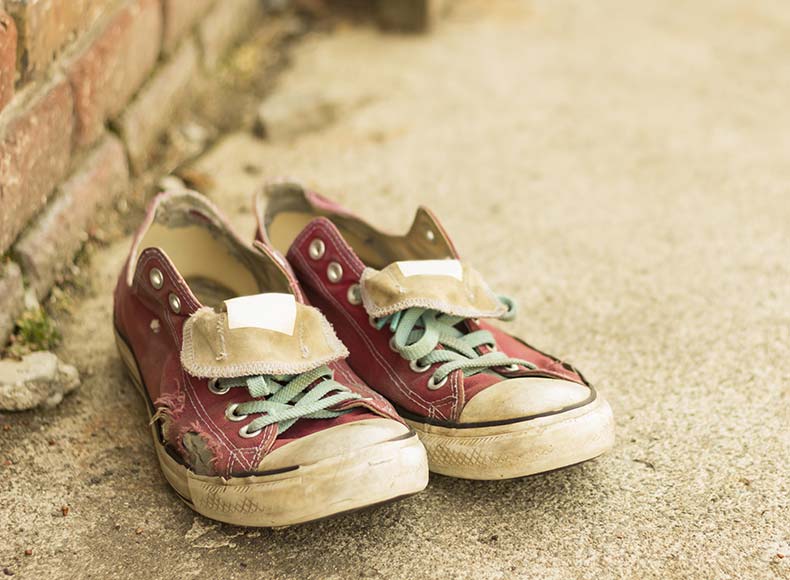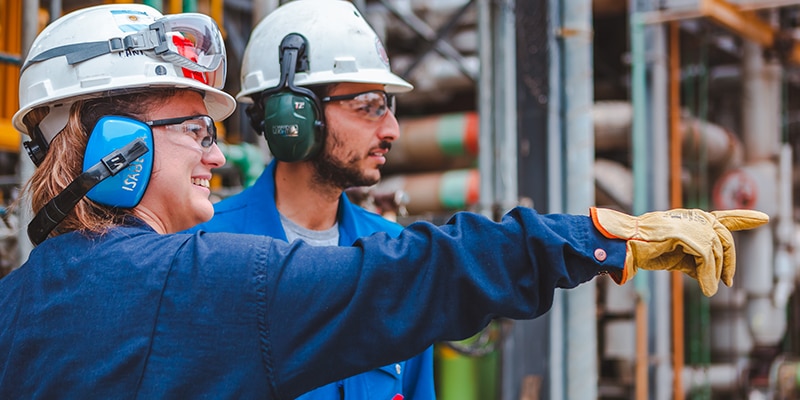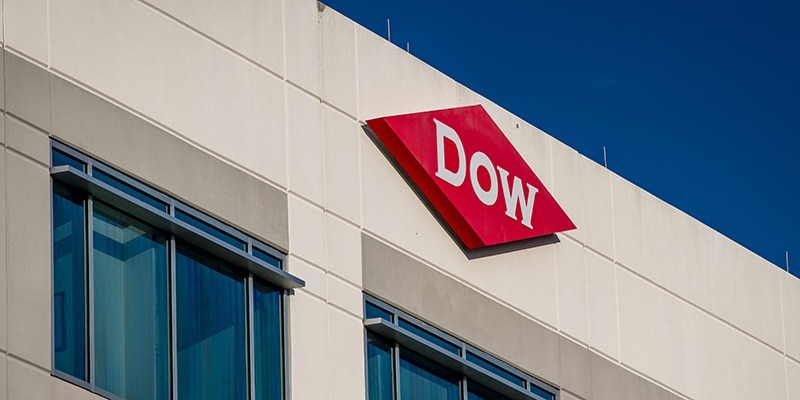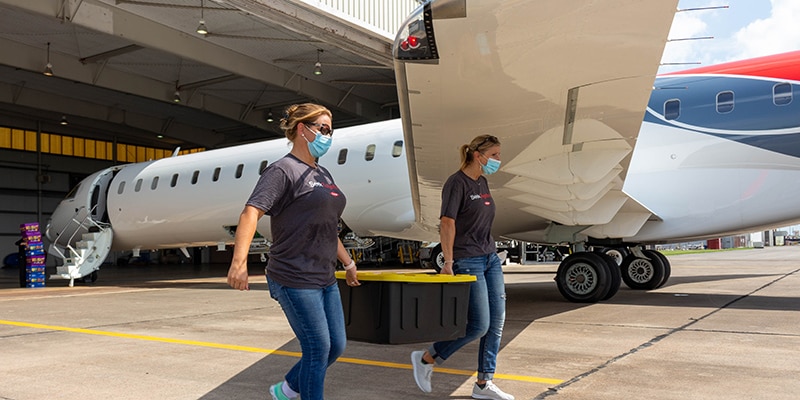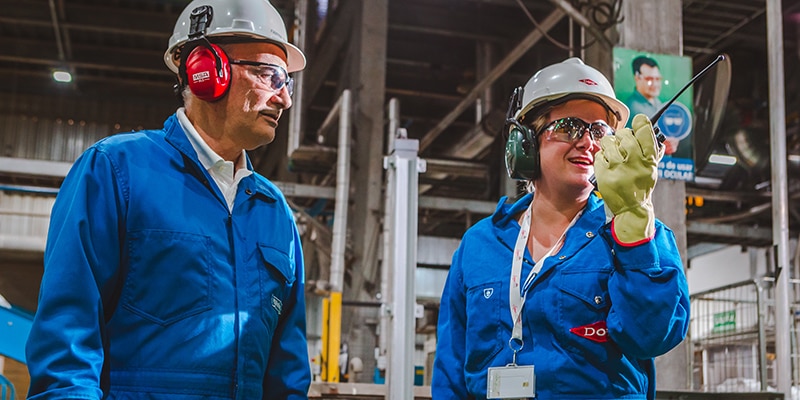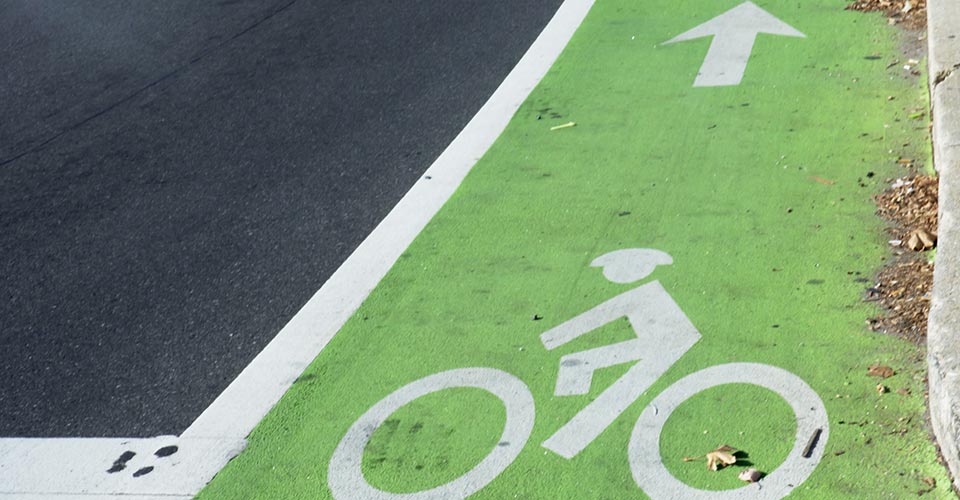
Enhancing cyclist safety with durable
green bike lanes
In many countries, there is an increasing focus on safe bicycle infrastructure as cycling helps promote healthy lifestyles and reduce emissions and road congestion. Clear bicycle lanes also help other road users anticipate the presence of cyclists. In Philadelphia, a team from Dow Coating Materials worked with the City of Philadelphia and the Bicycle Coalition of Greater Philadelphia to use Dow’s newly developed traffic paint technology for broad area markings to help expand the city’s green bike lane network across the city. Green-colored bike lane surfacing is a safety feature that tells road users that a portion of the roadway has been set aside for preferential or dedicated use by cyclists.
“The City of Philadelphia and the Bicycle Coalition wanted to expand their green bike lane network, but didn’t have a cost-effective way of doing so,” said Eric Greyson, development leader for Dow Industrial and Functional Coatings. “We partnered with city officials and the Bicycle Coalition to install real-world trials that demonstrate how the new paint technology for green bike lanes is both durable and delivers cost savings for the city.”
The project is funded through the Dow Business Impact Fund, a competitive grant program that designates corporate contributions toward projects that are designed to help address social problems through our technology and expertise. Proposals for funding come directly from Dow employees around the world, tapping into their unique skills, business knowledge, and diversity of locations and experiences.
Here’s a look at how the Dow Coating Materials team is hoping that investing in affordable, green bicycle lanes can help encourage bike commuting and cut greenhouse gas emissions.
CHALLENGE
Increasing road safety for cyclists
Cycling has been shown to have many physical and mental benefits for urban commuters, including helping improve energy levels and social well-being, while reducing fatigue and stress. And, bicycles, unlike the majority of cars, do not emit greenhouse gas emissions. In fact, University of Oxford research found that choosing a bike over a car just once during a day of commuting reduces an average person’s carbon emissions from transport by 67%.
Still, road safety is an issue for cyclists commuting on chaotic urban streets. Green-painted bike lanes help increase the visibility of cyclists, identify potential areas of conflict with turning motorists, and reinforces priority to cyclists. Plus, a new study suggests that adding bike lanes to urban streets can encourage more people to commute by bike.
Then, why not build more green bike lanes? For starters, cost is an issue. When the project kicked off in 2018, only 1% of bike lanes in Philadelphia were green-colored due to cost and application complexity, despite the fact that the green bike lanes were shown to increase the number of cyclists and improve overall road safety.
SOLUTION
Green bike lanes using cost-effective and durable traffic
paint
Dow used its newly developed DURATRACK™ 2K Technology on roughly 35,000 square feet of new bike lanes in the Philadelphia area. The green bike lane coatings offer the handling and sprayability of a waterborne system, while also providing performance and durability. This innovation yields superior adhesion to concrete and asphalt surfaces, skid resistance, UV durability and resistance to snow-plow abrasion. The technology also is quick-drying, which helps enhance work-zone safety through a speedy and efficient installation process.
Plus, the new traffic paint technology is projected to cut cost per mile by around 80 percent, which will hopefully lead to more miles of green bike lanes.
“Bike lanes give citizens an efficient alternative to getting around, while also promoting a healthy and active lifestyle,” said Joy Gallagher, global segment leader for Road Markings at Dow. “The solution we’re offering is relatively fast to apply, durable – even in the range of climates in Philly – and cost-effective.”
RESULTS
Building on the “safe streets” momentum
Installation of the bike lanes was completed in October. Going forward, the Dow team will work with the city of Philadelphia and the Bicycle Coalition of Greater Philadelphia to evaluate the performance of the bike lanes one year after installation and determine whether their installation increased cyclist volume. Surveys by the Bicycle Coalition also will measure whether the green-colored lanes increased awareness of the value of bike lanes.
“As people took up cycling during the COVID-19 pandemic, we believe they will appreciate having safe, green bike lanes for getting around the city,” Greyson said. “We’re excited to help Philadelphia and other cities enhance the safety, enjoyment, health and mobility of its citizens through green bike lanes.”
You may also be interested in
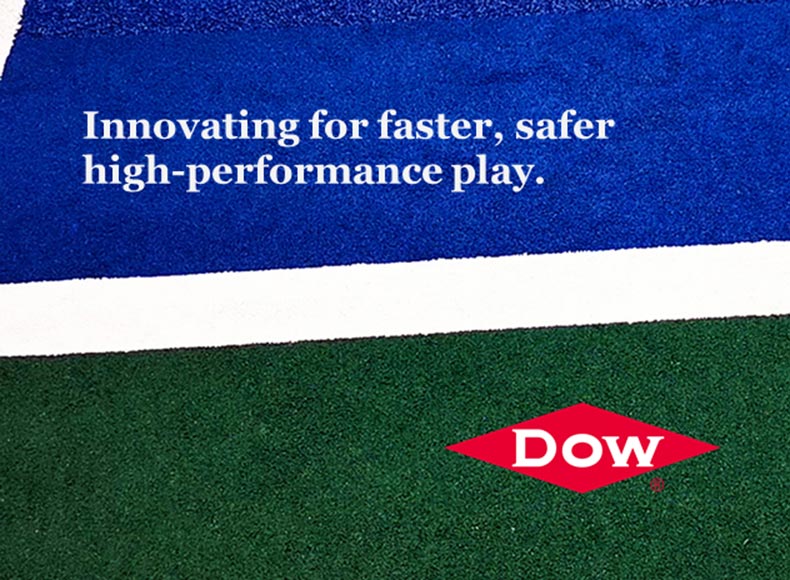
Faster-drying courts: Scoring a win
for tennis
